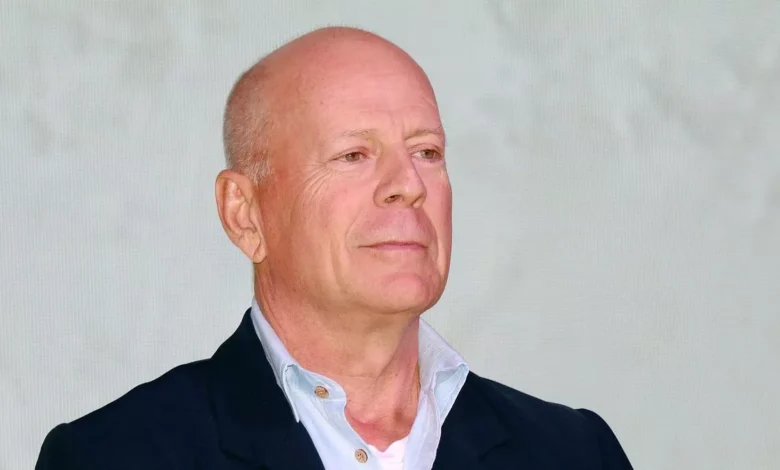Explanation of Bruce Willis’ Dementia Diagnosis, Highlighting Four ‘Subtle’ Warning Signs to Observe
Bruce Willis' family confirmed that the 68-year-old star was informed of his condition in the spring of 2022. Presently, several doctors have disclosed to Mirror US the nature of the illness and the symptoms that individuals should remain vigilant about.


Doctors have elucidated Bruce Willis’ unusual diagnosis of dementia, cautioning individuals to watch for four “subtle changes.” The 68-year-old Die Hard star received a diagnosis of frontotemporal dementia (FTD) last year. These doctors have now clarified how this uncommon type of dementia differs from more familiar conditions such as Alzheimer’s Disease.
Dr. Karen Severson commended Bruce for disclosing his condition publicly, expressing hope that it will stimulate further research in this field. However, she highlighted the financial constraints preventing many from affording the costly scans required for a prompt diagnosis. Additionally, she noted that age-related stereotypes often hinder diagnosis, as FTD typically manifests in individuals under the age of 60.




Dr. Jim Jackson, a neuropsychologist and research professor at Vanderbilt Medical Centre, has emphasised the identification of “subtle” indicators for detecting dementia. In contrast to Alzheimer’s disease, the most widely recognised form of dementia known for early memory alterations, FTD (Frontotemporal dementia) manifests through early behavioural changes, which can range from nuanced to notably pronounced.
He outlined four inconspicuous symptoms, noting that individuals affected by this condition might exhibit “socially inappropriate or even antisocial behaviour” and could demonstrate a notable lack of interest or enthusiasm towards various aspects. Additionally, he pointed out that individuals may exhibit discernible lapses in judgment and encounter challenges with language, encompassing difficulties in both expression and comprehension.




Dr. Jackson acknowledged that identifying the condition can be challenging as many of its symptoms closely resemble those of other conditions, such as depression. His perspective found support from Dr. Heather Sandison, a specialist in dementia and brain health, who stated, “The initial indicators often manifest as alterations in personality, making detection difficult and occasionally leading to misdiagnosis as a psychological disorder.”
Dr. Sandison elaborated that men between the ages of 45 and 65, particularly those with a family history of FTD or ALS, face the highest risk of developing FTD. She then offered insights into identifying the condition, advising, “The most effective way to nurture your brain, irrespective of stage, is by maximising efforts to address known modifiable risk factors associated with dementia.”
The expert further explained that numerous aspects of healthy ageing are within our control. These encompass managing blood sugar levels, maintaining optimal blood pressure, abstaining from processed foods and smoking, sustaining a healthy weight, participating in regular physical activity, limiting alcohol consumption, engaging in cognitive activities, preventing traumatic brain injuries, addressing depression, managing hearing loss and sleep disorders, staying socially active, and reducing exposure to air pollution.









